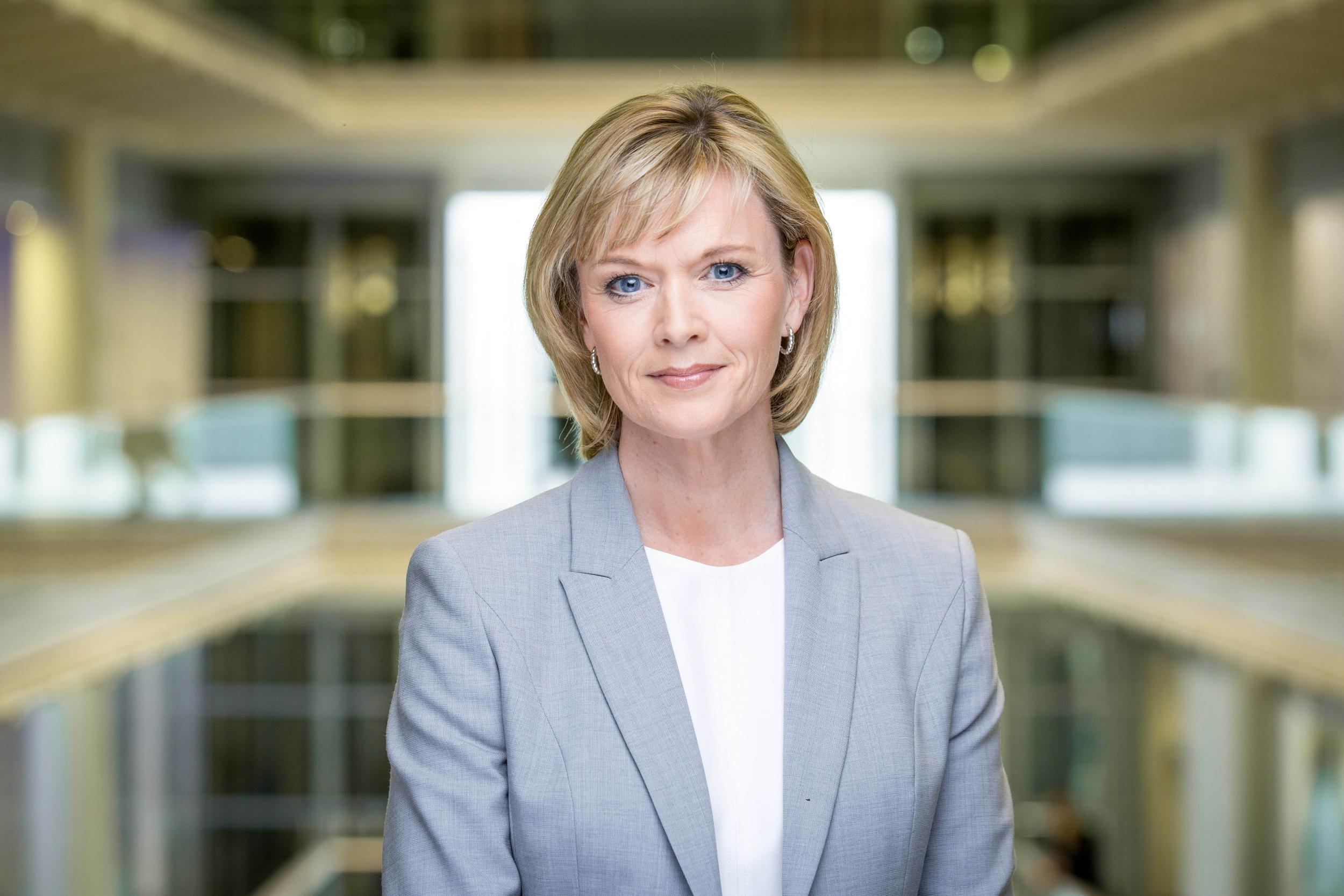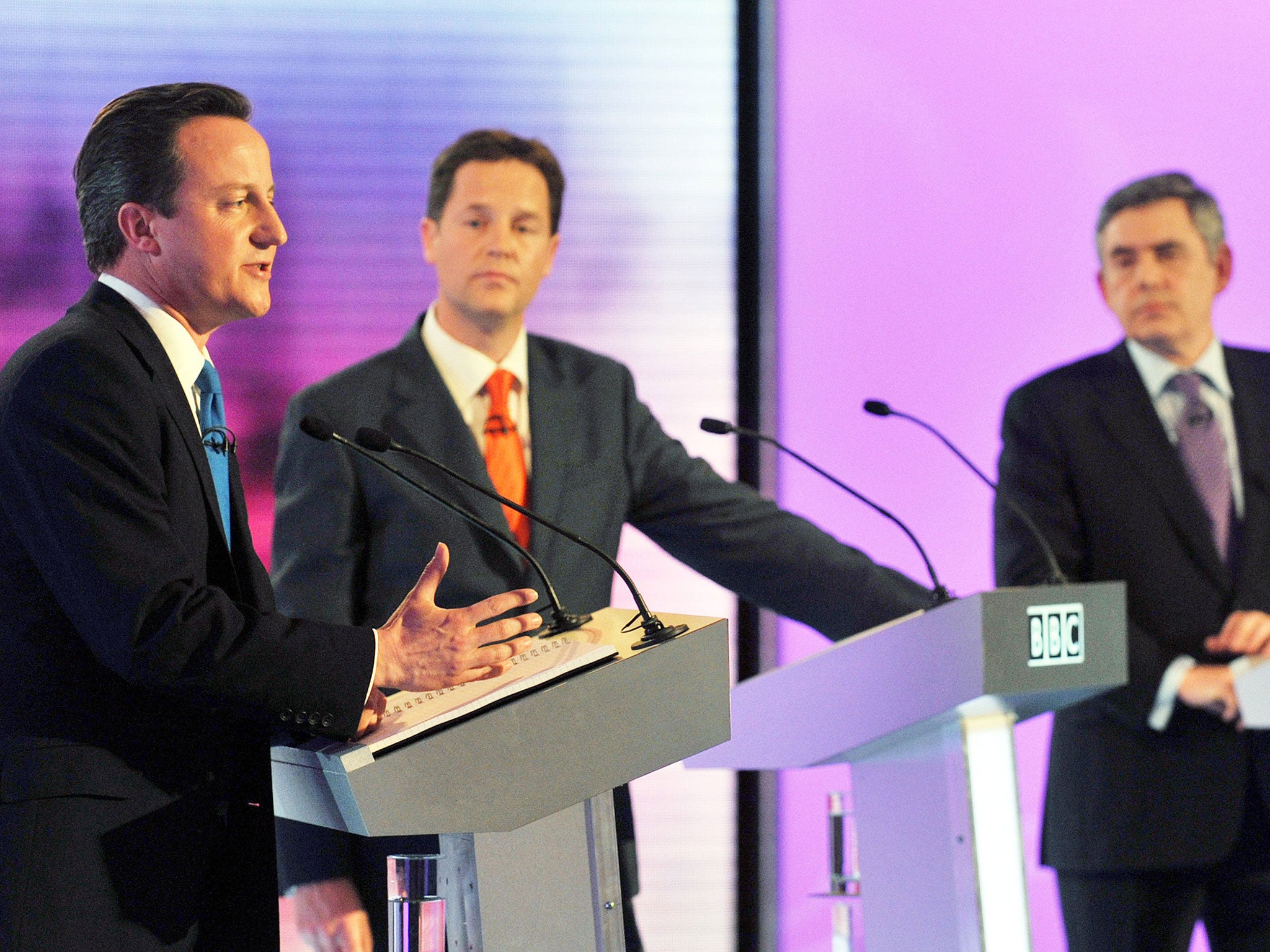Election debate: The clash between Johnson and Corbyn could be a crucial moment in the battle for votes
Both leaders will be hoping for something to give their campaign wings, writes Andrew Woodcock


Tuesday’s live TV debate between Boris Johnson and Jeremy Corbyn has the potential to make or break the general election campaign for the two leaders.
With Conservatives enjoying a healthy and growing lead in the opinion polls, the ITV showdown is a crucial opportunity for Corbyn to get Labour back into the race or for Johnson to set the seal on his party’s advantage.
Each will be targeting perceived weaknesses in his opponent’s offer, whether by highlighting policy shortcomings or by making his rival look unstatesmanlike, unprepared or unfit for Downing Street.
And each will take the opportunity to hammer home carefully-honed slogans. Anyone playing “buzzword bingo” during the hour-long confrontation can be pretty confident of hearing Johnson promise to “get Brexit done” and Corbyn say he will govern “for the many not the few” early in proceedings.
Most of all, each will be hoping to land the killer blow which will dominate Wednesday’s front pages and create a video clip which will top TV news bulletins and be shared on social media.
Although the first leaders’ debate in 2010 pulled in a creditable 9.4 million viewers and other broadcasts have attracted big audiences, the number sitting through the hour-long head-to-head at 8pm on Tuesday evening is likely to be dwarfed by those who just catch a few minutes of highlights later, or who join in the chorus of amusement and mockery as clips of gaffes and howlers are passed around on Twitter and Facebook.
And almost as important as the debate itself will be the instant polls on voter reaction, which will set the tone for analysis of the impact of the clash.
The power of the TV debate to change the terms of a campaign was vividly illustrated the very first time the format was used in the UK, when Gordon Brown took on David Cameron and Nick Clegg in 2010.
The Liberal Democrat leader briefly surfed a wave of “Cleggmania” after positioning himself as the voice of reason between two bickering big party contenders, while Brown and Cameron inadvertently made “I agree with Nick” into one of the slogans of the campaign.
Since then, leaders have shown themselves increasingly wary of entering the bearpit of the TV studio alongside their rivals, and the three-way debates of 2010 have given way to ever more imaginative new formats.
In 2015, Cameron and Ed Miliband were subjected to separate interviews and questions from a studio audience, a seven-way debate also taking in the Lib Dem, Green, Ukip, SNP and Plaid Cymru leaders and a Question Time special in which they and Clegg were grilled separately.

In 2017, Theresa May refused to go head-to-head with her rivals, insisting on being interviewed separately and sending Amber Rudd as a stand-in for a seven-way debate with leaders of the other parties.
This year, Johnson and Corbyn have sought to freeze out the smaller parties which are trying to stop the 12 December election being a two-horse race. Tuesday’s debate – the first of the campaign – and a proposed BBC showdown on 6 December will feature only the Tory and Labour leaders, each of whom are determined to cement themselves in voters’ minds as the only candidates for prime minister.
The Lib Dem and SNP legal challenge over their exclusion from the Julie Etchingham-hosted ITV show, which failed on Monday, was a doomed but essential bid to insist that voters are presented with a wider choice.
Jo Swinson’s campaign in particular has focused squarely on her position as a potential PM. And in many seats, the Lib Dems’ chances of victory depend on persuading voters that they are in with a chance and a vote for their candidate will not be wasted.
As Nick Clegg showed, nothing boosts the credibility of a minor party leader more quickly than an hour on the podium alongside the big beasts of Labour and the Conservatives, treated for once as an equal with equal time to speak and equal opportunity to shine or to fail.
Join our commenting forum
Join thought-provoking conversations, follow other Independent readers and see their replies
Comments